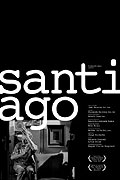
Réalisation:
João Moreira SallesScénario:
João Moreira SallesPhotographie:
Walter CarvalhoRésumés(1)
João Moreira Salles, brother of well-known director Walter Salles and son of a diplomatist and minister, chooses to take up an old project – a cinematic portrait of his butler, a man from the Argentinean countryside who lived for decades with the director’s aristocratic family in a mansion in Rio de Janeiro. This lonely man – slightly effeminate and owner of a portentous memory – was not only fluent in six diferent languages and loved Giotto’s paintings and Wagner’s music, but also devoted his life to writing a 30,000 page universal history of the world’s aristocracy; this bizarre hobby for a servant stands in perfect dialectic opposition to Salles’ attempt to film them. While Santiago’s interventions are of an existential and encyclopedic nature, Salles’ of-screen participations are poetical and philosophical. Santiago is a cinematic wonder, an irreplaceable masterclass in cinema. When the director states (or rather confesses) why he never uses close-ups of his protagonist’s face, the precise meaning of this staging is revealed. Deleuze used to say shots represent the consciousness of a director and no other film I know embodies that abstract, yet palpable statement better than Santiago, which is moving in its warning about how difcult it is to imagine the lives of others. (Viennale)
(plus)